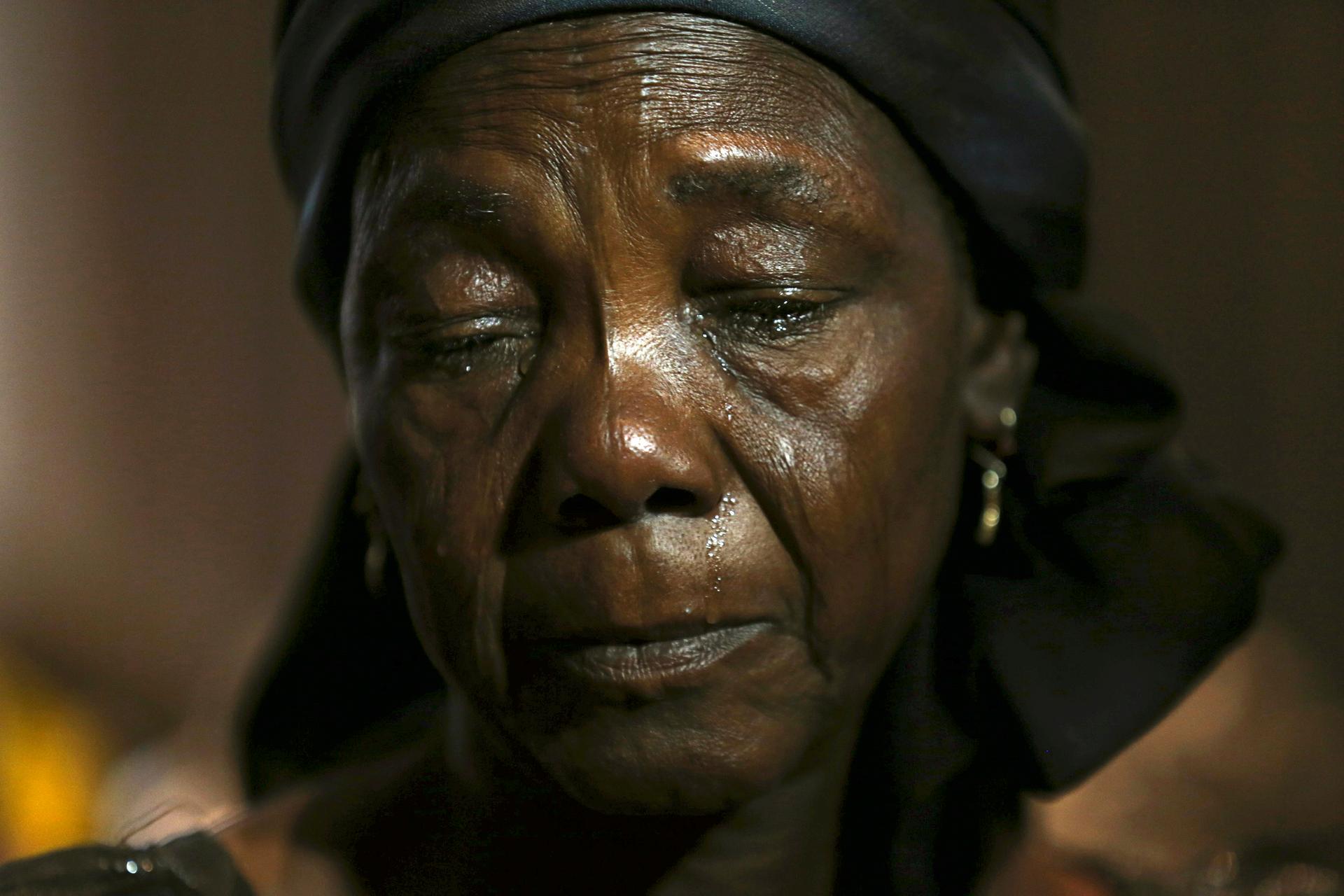In 100 days since the mass abduction of Nigerian schoolgirls, 11 of the girls’ parents have died
Hauwa Nkaki, mother of one of more than 200 girls abducted in the remote village of Chibok.
The agony continues for the families of 219 missing schoolgirls in Nigeria.
It has now been 100 days since the girls were abducted by the extremist group Boko Haram.
Nigerian President Goodluck Jonathan marked the occasion by meeting with some of the girls' relatives today. The kidnapping has been an unresolved tragedy for the families. But they also have to contend with an ongoing Boko Haram assault on northeastern Nigeria, where they live.
Eleven parents of missing girls have reportedly died since their daughters were kidnapped, many in fighting with the militant group.
Chude Jideonwo, a Nigerian journalist and lawyer in Lagos, says the parents' meeting with Nigeria's president today didn't include others who wanted to be there, like members of the press, or citizen action groups.
"These are not even middle class parents. Not a lot of them have engaged on this kind of level before," Jideonwo says. "But we want to hope for the best. This is their government. The government is responsible for the safety of citizens of the country. So one is hopeful these parents will not be intimidated, but there will be some constructive feedback that will comfort them."
Jideonwo says, while it's shocking that 11 parents of kidnapped girls have died since the abductions, the news doesn't surprise him, especially since the area lacks a major hospital and has suffered relentless Boko Haram attacks.
"The parents have essentially been on their own," he says. "They haven't even had any structured meeting with federal government officials to get a status update until today as to what exactly has been happening with their children."
Nigerians, especially those in the northeast, do not feel Nigeria's military is capable of protecting them, according to Jideonwo. However he says the abduction of the schoolgirls stands out "because of the sheer monstrosity that Boko Haram has dealt in this case."
This past weekend, Boko Haram seized what some consider a "major town" in Nigeria's northwest — Damboa. Nigeria's military suffered a rout, while militants killed more than 100 people, most of them unarmed villagers. The Islamists' black flag now flies above Damboa. Some have called it Boko Haram's biggest victory in five years.
"It speaks to a much deeper question of the capacity of our security forces, of the motivation of our security forces, and of the steady progress that we have allowed Boko Haram to make over the past few years in terrorizing citizens," he says. "It has built such a massive bulwark of confidence that it certainly feels that it can run down any village or town that it desires in the northeast."
Amid the chaos in the remote corner of Nigeria, Jideonwo admits that the plight of the missing schoolgirls has slipped from the attention of many of those in the rest of the country. But he said that changed as the event reached the 100 day marker this week.
"There was a sense that many Nigerians had moved on, that we had bigger problems to deal with," he admits. "However in the last week, thanks to the consistency of the bring back our girls protesters in Abuja, it's back on the front burner."
We want to hear your feedback so we can keep improving our website, theworld.org. Please fill out this quick survey and let us know your thoughts (your answers will be anonymous). Thanks for your time!
